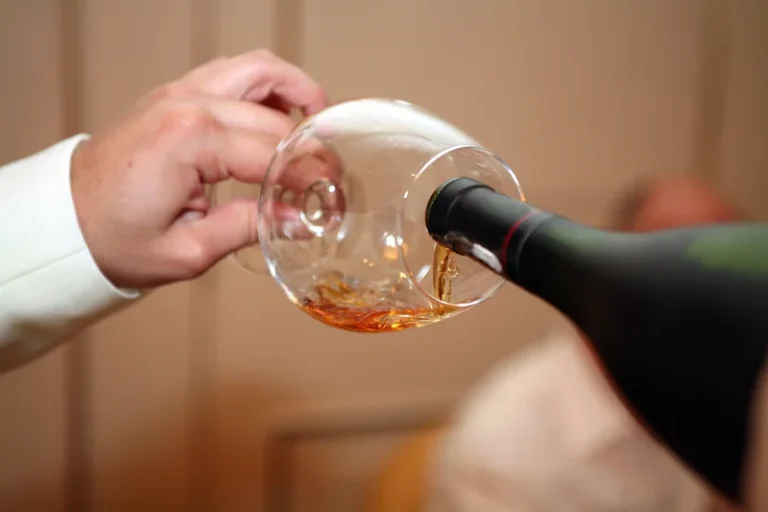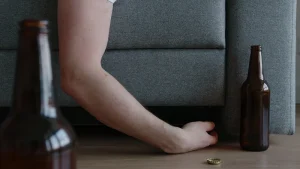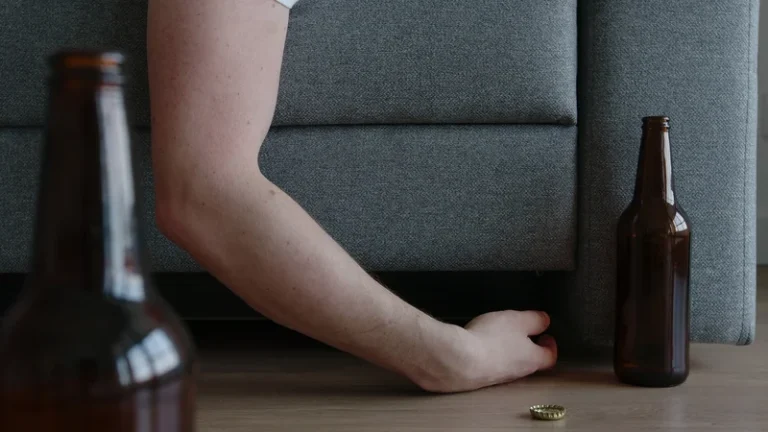
Alcohol works as a diuretic largely because it suppresses the release of a hormone called vasopressin, which is also known as antidiuretic hormone. With less vasopressin in your system, the body excretes more water, which in turn causes you to pee more (2). Still, enjoying these drinks in moderation and pairing them with other beverages in your diet, such as water, is unlikely to cause dehydration. Coffee, tea, and soda contain caffeine, a central nervous system stimulant that acts as a natural diuretic to increase urine production (1).
Do some types of alcohol dehydrate you more than others?

Alcohols like whiskey and brandy have high levels of congeners, including tannins and acetaldehyde. These might lead to dehydration more quickly, according to a 2010 study 8 9. A 2016 study published in the American Journal of Clinical Nutrition assigned a beverage hydration index (BHI) to various drinks that would determine hydration status after ingestion. If you’ve ever heard the term, “breaking the seal,” you know that alcohol has a diuretic effect on the body, meaning it causes you to urinate more frequently. The process is called diuresis, which on its own causes dehydration 1.

Is Wine or Beer More Dehydrating?
Second, if you weigh 60 kilograms, you generate about 60 millilitres of urine each hour. And for 80 kilograms, about 80 millilitres per hour, and so on. Ian Landau is a journalist who’s written extensively about health and wellness since 2010.

Does Dehydration Make Hangovers Worse?
- How long it takes to rehydrate after drinking depends on how much alcohol you have consumed and how much fluid volume and electrolytes your body lost.
- The job of ADH is to stop you urinating, so you hang on to your precious water.
- That’s because they contain high levels of tannins and acetaldehyde.
Yes, alcohol has a diuretic effect, which means that consuming alcohol increases urine production and leads to fluid loss and dehydration. If you’ve eaten some food and have consumed a glass of water, you can drink a few glasses of wine before you start to feel the effects of mild to moderate dehydration. Of course, the more you urinate, the faster you’ll become dehydrated if you keep following up with more glasses of wine. To understand how wine dehydrates you, we have to break down the dehydrating effects of alcohol overall. A good way to limit your overall alcohol consumption, and thus limit alcohol’s dehydrating effects, is to alternate alcoholic drinks with glasses of water.
- Drink too many beers too quickly, and you’ll end up as dehydrated as you would taking a shot at the bar.
- Once you consume alcohol, it’s already in your body and must be removed by the liver.
- When alcohol reaches the pituitary gland, it blocks the creation of vasopressin, which is known as the antidiuretic hormone or the hormone that helps us retain fluid in our body.
- Yes, alcohol has a diuretic effect, which means that consuming alcohol increases urine production and leads to fluid loss and dehydration.
- Milk is also a good choice to help you rehydrate, assuming your hangover hasn’t put you off dairy.
- The most common symptoms of alcohol dehydration include thirst, a dry mouth, headaches, muscle aches or cramps, fatigue, and dark-colored urine.
If you drink six to 10 standard drinks, this could lead to 600–1,000 mL of lost fluids, causing dehydration. Most reach for water to rehydrate, but in most cases that’s not enough to quickly and properly rehydrate you. Water doesn’t have enough electrolytes and/or vitamins to replace the electrolytes and vitamins lost due to dehydration. Some people take pain relievers to prevent hangover symptoms.
Why Does Alcohol Dehydrate You?
Consuming alcohol while dehydrated will just make dehydration worse. The diuretic effects will cause your body to lose water faster due to increased urination. The best way to ensure proper hydration is to drink plenty of water. When you’re drinking more than usual, it’s important to remember to consume alcohol responsibly (for both your health and safety!). Alcohol is a diuretic, which means it moves fluid out of your body and can easily dehydrate you. Not only is staying well-hydrated key to your long-term health, but it can also help you avoid uncomfortable hangover symptoms.
Symptoms

Intravenous (IV) fluids may be required to stabilize you if you’re experiencing severe dehydration. Most hard liquors have high alcohol content; the alcohol by volume (ABV) of liquor is around 40%. You’re likely to urinate 100 mL more for every standard drink you consume (10 mL of alcohol).
Does Wine Dehydrate You?
- If these detectors reckon that you are dehydrated, they send a signal to the posterior pituitary gland, which starts pumping out ADH.
- Stick to beer and wine to mitigate any dehydration you may experience.
- „Drinking one beer over the course of a dinner will not increase your blood alcohol levels as much as if you drank four beers in the same time frame,” says Rumsey.
- It is important for a person to be aware of the signs and symptoms of alcohol-induced dehydration and the ways to avoid it.
- These are substances that promote urine production, or diuresis.
- If you drink wine without water, your buzz is likely to be stronger and last for longer.
But there’s no easy way to know how much you can safely drink and still avoid a hangover. She goes on to explain these nutrients also help you retain fluids, while chugging a bunch of water will cause much of it to pass through your system without properly rehydrating you. Excessive drinking can also lead to a buildup of a toxic substance called acetaldehyde. When your body can’t get rid of acetaldehyde quickly enough, you may experience your body getting rid of this substance the next morning (usually by vomiting) 5. Next Health clarifies the relationship and difference between alcohol and hydration. Over time, mass mineral and electrolyte deficiencies can lead to rapid dehydration when alcohol enters the picture.
What are the best electrolytes for hangovers?
Since alcohol travels through the bloodstream, it can travel to other areas of our body including the pituitary gland in our brain. The pituitary gland is responsible for regulating our growth, metabolism, and reproduction by creating and regulating hormones. When alcohol reaches the pituitary gland, it blocks the creation of vasopressin, which is known as the antidiuretic hormone or the hormone that helps us retain fluid in our body. Blocking this antidiuretic hormone causes fluids to pass directly through the kidneys to our bladder, which is why we have to pee way more while drinking alcohol.

So these salts are now more concentrated in the reduced volume of water that you have when you are dehydrated. But even today we still don’t fully understand how alcohol causes this excessive urination. In Shakespeare’s does liquor make you dehydrated play, Macbeth, the porter says that alcohol promotes „nose�painting, sleep and urine”. Drinking water while you’re still drunk isn’t going to prevent you from becoming dehydrated, but it may help lessen the degree to which you’re dehydrated.